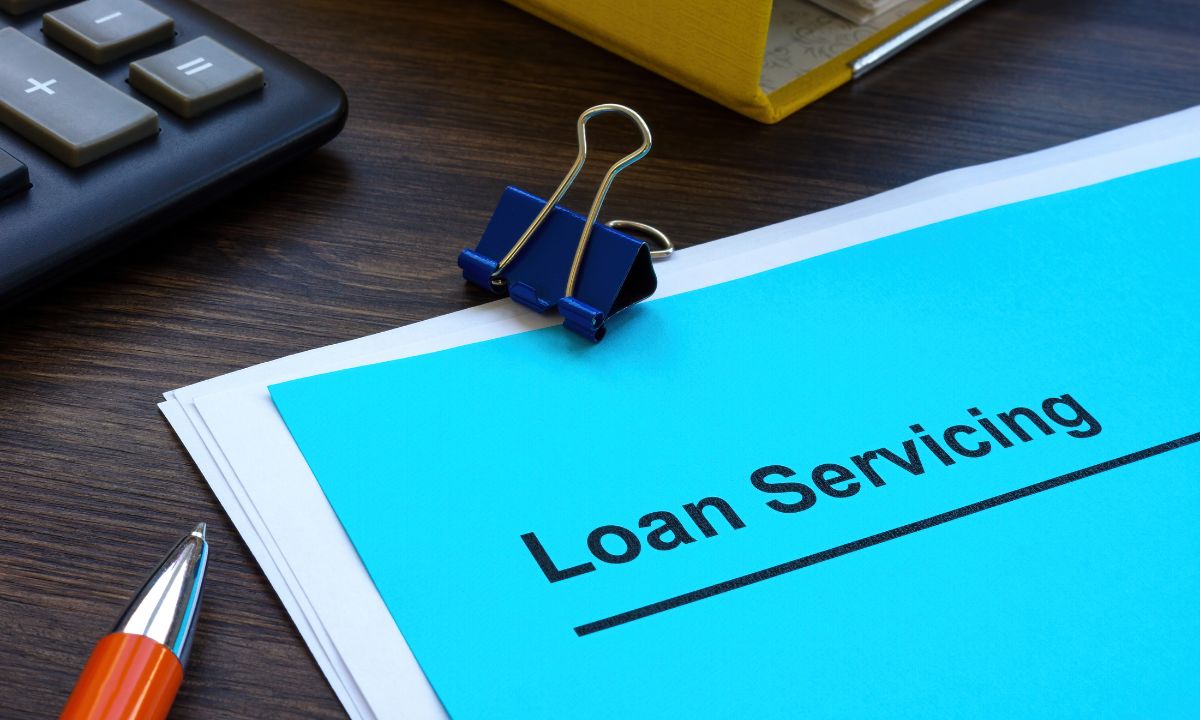What Is a Mortgage Loan Servicer?
 Working through the mortgage process can be complex, and one significant yet often misunderstood aspect is the role of a mortgage loan servicer. You might be familiar with lenders, the entities that provide the funds for your home purchase, the servicer is the company you’ll interact with most frequently over the life of your loan. Understanding what a mortgage loan servicer does can help you manage your mortgage more effectively and know who to turn to with any questions or issues.
Working through the mortgage process can be complex, and one significant yet often misunderstood aspect is the role of a mortgage loan servicer. You might be familiar with lenders, the entities that provide the funds for your home purchase, the servicer is the company you’ll interact with most frequently over the life of your loan. Understanding what a mortgage loan servicer does can help you manage your mortgage more effectively and know who to turn to with any questions or issues.
The Basics of Mortgage Loan Servicing
A mortgage loan servicer is a company responsible for managing your loan from the moment it is closed until it is paid off. They handle the day-to-day tasks associated with your mortgage, acting as a liaison between you and the lender. Here’s a detailed look at their key responsibilities:
- Collecting Payments
- The servicer collects your monthly mortgage payments, which typically include principal, interest, taxes, and insurance (often abbreviated as PITI). They ensure that these payments are applied correctly to your loan.
- Managing Escrow Accounts
- If your mortgage includes an escrow account, the servicer manages it. This account holds funds to pay your property taxes and homeowner’s insurance. The servicer ensures that these bills are paid on time, preventing any lapses in coverage or penalties.
- Providing Customer Service
- Mortgage loan servicers are your point of contact for any questions or issues related to your loan. They offer customer support to help you understand your mortgage statements, resolve payment issues, and provide information about your account.
- Handling Delinquency and Foreclosure
- If you miss payments, the servicer will reach out to discuss options and help you get back on track. In cases of prolonged delinquency, they initiate foreclosure proceedings, although they often try to work with borrowers to avoid this outcome.
- Assisting with Loan Modifications and Refinancing
- If you experience financial hardship, the servicer can assist with loan modifications, which may involve changing the terms of your loan to make payments more manageable. They can also guide you if you decide to refinance your mortgage.
- Processing Payoffs
- When you pay off your mortgage, by selling your home or refinancing with a new lender, the servicer processes the final payment and releases the lien on your property.
Why Mortgage Loan Servicers Matter
Customer Experience: A good servicer ensures a smooth and hassle-free experience. They provide timely and clear communication, making it easier for you to manage your mortgage.
Financial Health: By managing escrow accounts and ensuring timely payments of taxes and insurance, servicers help you avoid penalties and lapses in coverage that could impact your financial standing.
Support During Hardship: If you face financial difficulties, a proactive and supportive servicer can offer solutions to help you keep your home, such as loan modifications or repayment plans.
Choosing a Good Mortgage Loan Servicer
The quality of service you receive can vary significantly between servicers. Here are some tips for choosing a good one:
- Reputation: Look for servicers with positive reviews and high customer satisfaction ratings. Online reviews and ratings from financial institutions can provide insights.
- Communication: Ensure the servicer offers multiple communication channels (phone, email, online portal) and has a reputation for responsiveness.
- Transparency: A good servicer provides clear, detailed information about your payments, escrow accounts, and any fees. They should be transparent about their processes and easy to understand.
- Responsiveness: Choose a servicer known for prompt responses and efficient issue resolution. Delays in addressing concerns can lead to bigger problems down the line.
Understanding the role of a mortgage loan servicer is crucial for effective mortgage management. These companies play a key role in handling your payments, managing your escrow accounts, and providing support throughout the life of your loan. By choosing a reputable and responsive servicer, you can ensure a smoother and more secure homeownership experience. Always keep open lines of communication with your servicer and don’t hesitate to reach out to them with any questions or concerns. Your mortgage is one of the most significant financial commitments you’ll make, and having a reliable servicer can make all the difference.
 Are you in the process of purchasing a home or considering refinancing your mortgage? If so, you’ve likely encountered the term “escrow account” during your discussions. Mortgage escrow accounts are a crucial component of many home loans, yet they can be a bit mysterious to those unfamiliar with the ins and outs of the mortgage process. Let’s embark on a journey to explore what escrow accounts are, how they work, and what you need to know as a homeowner.
Are you in the process of purchasing a home or considering refinancing your mortgage? If so, you’ve likely encountered the term “escrow account” during your discussions. Mortgage escrow accounts are a crucial component of many home loans, yet they can be a bit mysterious to those unfamiliar with the ins and outs of the mortgage process. Let’s embark on a journey to explore what escrow accounts are, how they work, and what you need to know as a homeowner. If you’re a homeowner with a mortgage, you may be familiar with the concept of an escrow account. This financial tool is designed to simplify the management of property-related expenses by combining certain costs, such as property taxes and insurance, into one account. Typically, your mortgage servicer collects a portion of these expenses with each monthly mortgage payment and holds the funds in an escrow account to cover these bills when they become due.
If you’re a homeowner with a mortgage, you may be familiar with the concept of an escrow account. This financial tool is designed to simplify the management of property-related expenses by combining certain costs, such as property taxes and insurance, into one account. Typically, your mortgage servicer collects a portion of these expenses with each monthly mortgage payment and holds the funds in an escrow account to cover these bills when they become due.